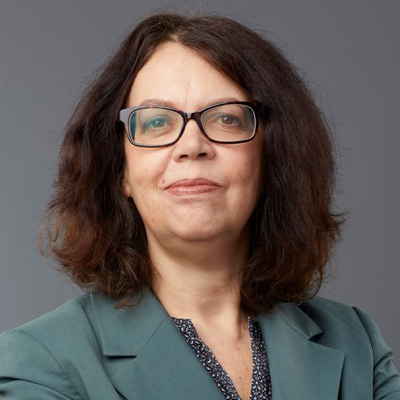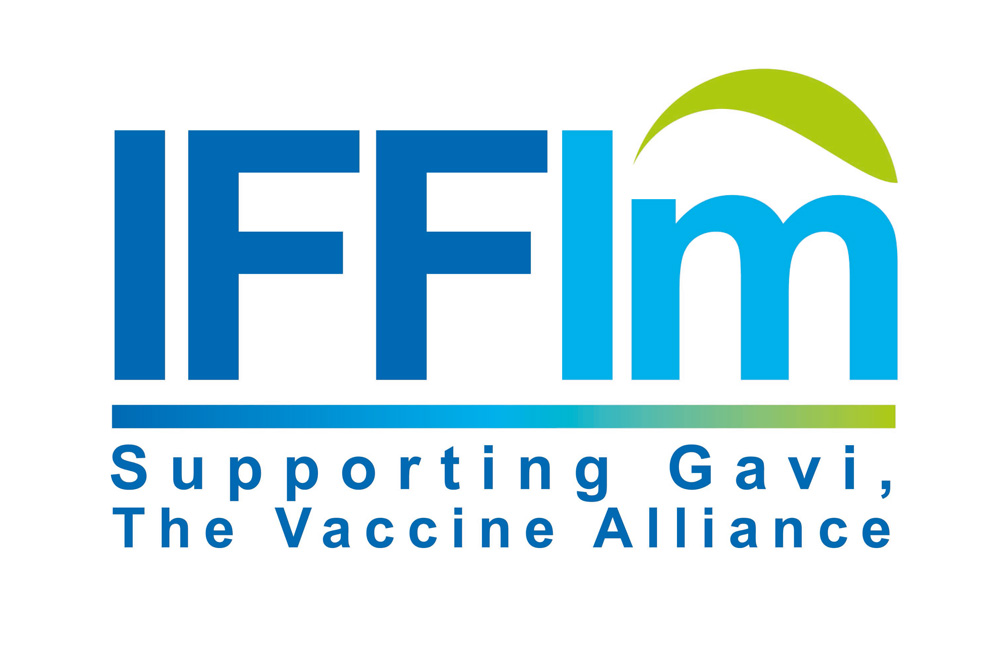Reflections on IFFIm: an interview with Rachel Turner
Reflections on IFFIm: an interview with Rachel Turner
14 November 2024

Rachel Turner
Rachel Turner joined the IFFIm Board of Directors in July 2024, following a long career at the United Kingdom’s Foreign, Commonwealth & Development Office (FCDO). Here, she shares her thoughts on her past work and future possibilities with IFFIm.
Rachel Turner joined the IFFIm Board of Directors in July 2024, following a long career at the United Kingdom’s Foreign, Commonwealth & Development Office (FCDO). Here, she shares her thoughts on her past work and future possibilities with IFFIm.
You were working with FCDO (formerly DFID) when IFFIm was being developed. Has IFFIm fulfilled the mission it was set out to?
Yes, I think it has. When IFFIm was developed the rationale was to frontload finance from long-term donor commitments to invest urgently in expanding access to vaccines, but I am not sure that we ever thought it would still be operating with new commitments 18 years later! I remember that we looked very carefully at the economic and development benefits of investing early and checked that the returns would outweigh the costs of raising finance. IFFIm has mobilised $5.8 billion for Gavi since it was first conceived. The fact that IFFIm continues to be used demonstrates the continuing confidence in Gavi, and the continued economic case for frontloading—not least in the context of helping roll out new vaccines.
What do you think are the biggest challenges for Gavi and IFFIm in the next five years?
Right now a key challenge is to raise new finance for the next Gavi strategic plan, or Gavi 6.0. There are still 13 million unreached “zero dose” children without access to basic childhood vaccines and there are new vaccines being rolled out, including malaria. Many countries will have to deal with shocks to their health systems as well. Whether they be fiscal shocks caused by climate, conflict, global or regional events or pandemics. So Gavi and IFFIm must work together to stay ambitious for new funding but also stay very flexible and nimble to target resources where they are most needed and be able to respond to crises. One of the key benefits of IFFIm should be that it can act as a buffer for Gavi—able to surge financing when shocks occur.
With your experience in Africa, what do you think the biggest challenges are for implementing countries to develop a strong immunisation programme?
Many African countries are facing severe impacts from the debt crisis, with many countries facing severe strain on their health budgets as they attempt to meet debt service costs - countries are having to make tough choices about what to invest in. So in my experience it really matters that countries can get clarity on their support from Gavi and its partners to help with decisive, evidenced-based planning and careful targeting of resources.
How do you think you can best contribute to IFFIm as a Board member?
First, I remain passionate about IFFIm. It is a very simple, straightforward financial model that works. So I will continue to be a very strong advocate for donors to support IFFIm. At the same time I want to use my position to make sure that IFFIm continues to evolve. I think it is very important not to forget all the lessons from the pandemic and to continue to rehearse and think about how IFFIm can best be used for contingency and crisis financing. With such a long history of confident donor support there may also be ways to get even more efficiency out of the donor balance sheet. I have a long history of working from the donor side on all sorts of different innovative financing mechanisms and I hope I can use that understanding to keep driving IFFIm forward.
Tell us about an accomplishment you are particularly proud of.
I have just retired after a long career in development, working for the UK's development programme. I am very proud of many of the things I achieved—especially working on debt relief and poverty reduction strategies, rolling out shock responsive social protection schemes in Africa, building the case for disaster risk insurance and driving innovations and ambition in the Multilateral Development Banks.
Share this article
Restricted Access Library
 The material in this Restricted Access Library is intended to be accessed only by persons with residence within the territory of a Member State of the European Union and is not intended to be viewed by any other persons. The material in this Restricted Access Library is provided by IFFIm for information purposes only and the materials contained herein were accurate only as of their respective dates. Certain information in the materials contained herein is not intended to be, and is not, current. IFFIm accepts no obligation to update any material contained herein.
The material in this Restricted Access Library is intended to be accessed only by persons with residence within the territory of a Member State of the European Union and is not intended to be viewed by any other persons. The material in this Restricted Access Library is provided by IFFIm for information purposes only and the materials contained herein were accurate only as of their respective dates. Certain information in the materials contained herein is not intended to be, and is not, current. IFFIm accepts no obligation to update any material contained herein.
Persons with residence outside the territory of a Member State of the European Union who have access to or consult any materials posted in this Restricted Access Library should refrain from any action in respect of the securities referred to in such materials and are otherwise required to comply with all applicable laws and regulations in their country of residence.
By clicking Access restricted content: DYNAMIC-LINK-TEXT I confirm that I have read and understood the foregoing and agree that I will be bound by the restrictions and conditions set forth on this page.
The materials in this Restricted Access Library are for distribution only to persons who are not a "retail client" within the meaning of section 761G of the Corporations Act 2001 of Australia and are also sophisticated investors, professional investors or other investors in respect of whom disclosure is not required under Part 6D.2 of the Corporations Act 2001 of Australia and, in all cases, in such circumstances as may be permitted by applicable law in any jurisdiction in which an investor may be located.
The materials in this Restricted Access Library and any documents linked from it are not for access or distribution in any jurisdiction where such access or distribution would be illegal. All of the securities referred to in this Restricted Access Library and in the linked documents have been sold and delivered. The information contained herein and therein does not constitute an offer for sale in the United States or in any other country. The securities described herein and therein have not been, and will not be, registered under the U.S. Securities Act of 1933, as amended (the "Securities Act"), and may not be offered or sold in the United States except pursuant to an exemption from, or in a transaction not subject to, the registration requirements of the Securities Act and in compliance with any applicable state securities laws.
Each person accessing the Restricted Access Library confirms that they are a person who is entitled to do so under all applicable laws, regulations and directives in all applicable jurisdictions. Neither IFFIm nor any of their directors, employees, agents or advisers accepts any liability whatsoever for any loss (including, without limitation, any liability arising from any fault or negligence on the part of IFFIm or its respective directors, employees, agents or advisers) arising from access to Restricted Access Library by any person not entitled to do so.
"Relief" for mothers in Bayelsa state as malaria vaccine makes waves
07 November 2025
